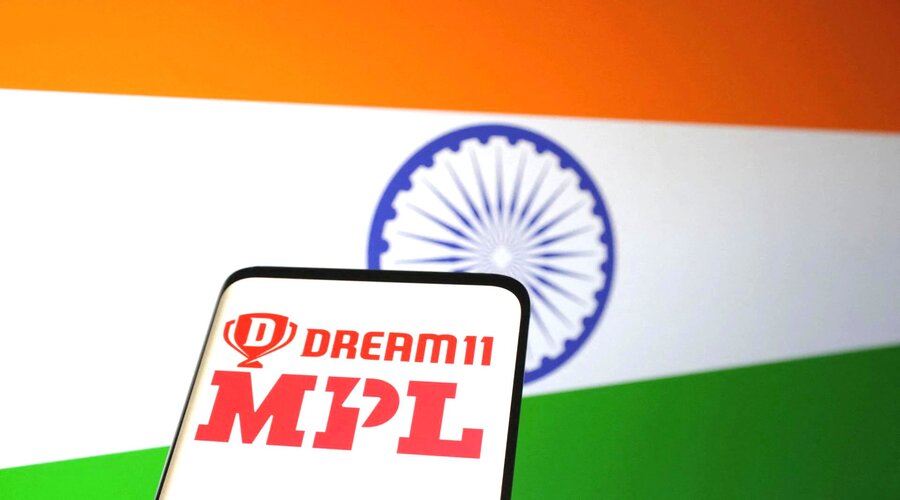
Indian Government Panel Wants New Laws And A Regulatory Body For For Online Gaming
A panel set up by the Indian government said in a report submitted to the government that India should establish a regulatory body to classify online games as skill or chance, implement rules to block prohibited formats, and take a stricter stance on gambling websites.
For months, a panel of Prime Minister Narendra Modi’s top officials has been drafting regulations for the country’s online gaming sector. Foreign investors like Tiger Global and Sequoia Capital have backed gaming startups Dream11 and Mobile Premier League, both hugely popular for fantasy cricket.
The long-awaited report is expected to shape the future of India’s mobile gaming industry, which is expected to grow to $5 billion by 2025 from $1.5 billion this year. It comes amid growing concerns about video games causing addiction and “inconsistent state laws” causing business disruption.
Simply defining games has been a source of contention. The card game rummy and certain fantasy games are skill-based and legal in India, according to the Supreme Court, but at least one state court classified games like poker as chance-based or akin to gambling, which is illegal in most states.
The panel of government officials calls for a new regulatory body under India’s IT ministry to determine which online games qualify as games of skill and then “seek compliances and enforcement” in its confidential draft report dated Aug. 31.
According to the 108-page report, India requires a new federal online gaming law to provide regulatory flexibility “with punishment provisions, as well as blocking powers, for the government against prohibited gaming formats.”
Though the panel only considered online skill games and not gambling, which states handle, many illegal offshore betting and gambling websites have become popular among Indian users. The new legal framework would apply to skill games that are both free and pay-to-play.
“On the aspect of prohibiting games of chance (e.g. gambling websites or apps) being played online, the proposed Digital India Act can include it in the list of prohibited user harms that will not be permitted,” the report stated.
According to a senior government official, while the federal government could classify chance-based games as harmful, states would have the final say on whether to allow gambling.
Also Read,
America’s Warburg In Talks With Indian Shadow Bank Vistaar For A 30% Stake Worth $150 Mln
According to the report, state governments are already finding it “difficult to implement and monitor geo-fencing measures” to ensure that no users in their region are accessing illegal forms of gambling or gaming.
After receiving additional comments from panel members, including the heads of the revenue and sports ministries, the IT ministry will finalize the report. It will then be sent to the cabinet secretariat for approval, with no timetable for completion.
No comments were available on the issue from the Indian IT Ministry and the panel members.
According to a senior gaming industry executive, the recommendation that a regulatory body evaluates various online game formats could raise entry barriers for new players while also increasing scrutiny of companies’ current offerings.
Nonetheless, the executive stated that the new regulations will provide “regulatory clarity, certainty, and investment for the sector.” Because of the situation’s sensitivity, the executive declined to be named.
According to a 2020 report by the Indian trade group FICCI and consulting firm EY, transaction-based gaming, including real-money, contributed 71%, or 46 billion rupees, of the 65 billion Indian rupees ($817 million) earned by the online gaming industry the previous year.
Top Indian cricketers’ endorsements and other marketing efforts have increased the appeal and investor interest in real money gaming apps.
According to PitchBook data, Dream11 is worth $8 billion, while Mobile Premier League is worth $2.5 billion. By 2021, India will have 95 million paying gamers.
According to the government report, the proliferation of such games among the youth had resulted in addiction, which frequently resulted in financial losses, with some reported cases of suicide.
According to the report, laws and regulations should include “de-addiction measures” such as periodic warnings and advisories and deposit and withdrawal limits. It also encourages “responsible advertising.”
Paid contests continue to be the most appealing feature of online games, such as fantasy cricket on Dream11. Users can form teams for as little as 14 rupees (17 cents), with a total prize pool of 7 million rupees ($88,000) up for grabs. The top performer will receive 275,000 rupees ($3,462).
After receiving suggestions from India’s revenue department, the government panel stated that online gaming companies should be required to report any “suspicious transactions” to the government’s Financial Intelligence Unit.
Also Read,
Valkyrie Added an Investment Of USD 73.6 M In 2 Of Its Crypto-centered Trusts





